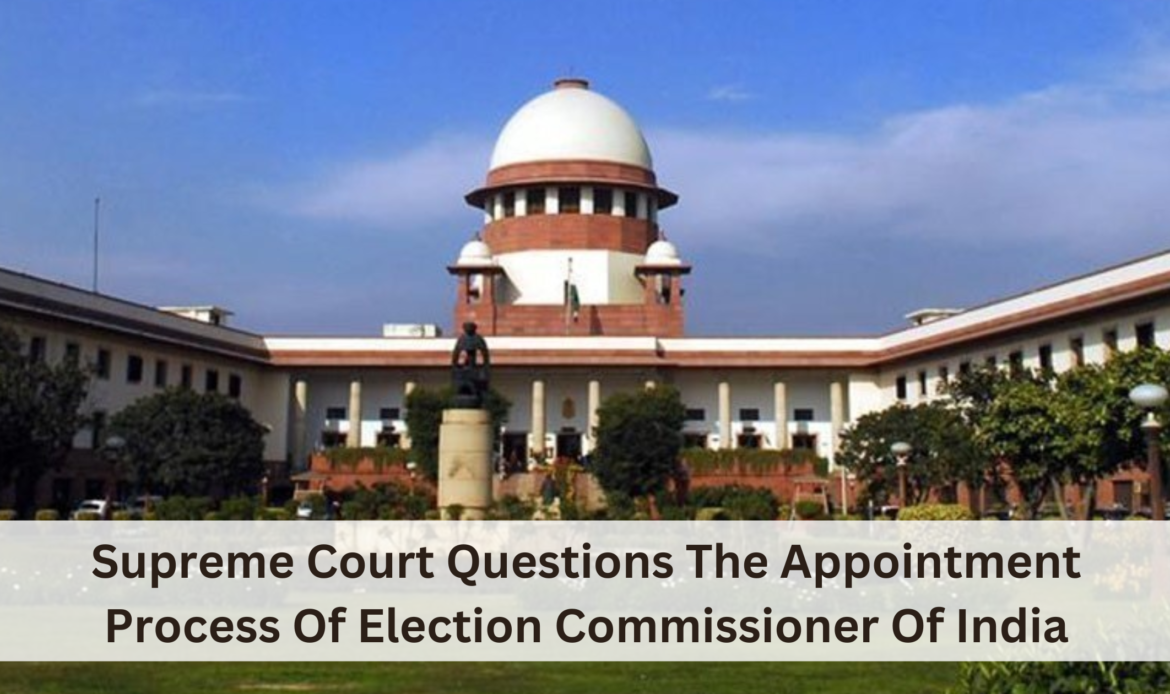The Supreme Court of India has recently raised concerns over the appointment process of the Election Commissioner of India. This move comes amidst debates regarding the autonomy and integrity of the electoral process in the country.
The Election Commission of India plays a pivotal role in upholding the democratic fabric of the nation. It oversees the conduct of elections at various levels, from local bodies to the national Parliament. Its independence and impartiality are critical to ensuring free and fair elections.
The Controversy
The issue surfaced during a hearing where the Supreme Court was deliberating on a case involving the appointment of a new Chief Election Commissioner (CEC). The apex court highlighted certain lacunae in the current appointment process, which raised questions about its transparency and fairness.
The appointment of the Election Commissioner in India is governed by Article 324 of the Constitution. Currently, the CEC and other Election Commissioners are appointed by the President of India based on the advice of the Prime Minister and other Cabinet ministers.
Arguments Raised by the Supreme Court
The Supreme Court expressed concerns about the lack of a structured procedure or mechanism for the appointment of Election Commissioners. It noted that the current method could potentially compromise the independence of the Election Commission.
The court’s observations have reignited the debate on electoral reforms in the country. Many experts and stakeholders have called for a more transparent and objective selection process for appointing Election Commissioners.
Comparative Analysis
The appointment process of the Election Commissioner in India differs from several other democratic nations. For instance, in countries like the United States and the United Kingdom, such appointments often involve a rigorous selection process and parliamentary scrutiny to ensure fairness and competence.
The independence of the Election Commission is vital for maintaining the credibility of the electoral process. Any perception of bias or political influence can erode public trust in the fairness of elections.
Possible Solutions For This Problem
To address the concerns raised by the Supreme Court, several recommendations have been proposed. These include establishing a bipartisan committee or a judicial panel to oversee the selection of Election Commissioners.
Such measures aim to enhance accountability and transparency in the appointment process. The issue of electoral reforms and the appointment of Election Commissioners of India has broader political implications. It reflects the ongoing efforts to strengthen democratic institutions and uphold the principles of governance.
A Look At The Way Forward
In light of the Supreme Court’s observations, there is a growing consensus among policymakers and civil society organizations to initiate reforms that ensure a more robust and transparent process for appointing Election Commissioners. These reforms are essential to uphold the integrity and autonomy of the Election Commission.
All in all, the appointment process of Election Commissioner of India underscores the need for comprehensive electoral reforms. And, the recent scrutiny by the Supreme Court of India confirms it. Want to know more about such legal issues? If yes, contact Kshetry and Associates, the best law firm in Kolkata. We have trusted legal advisors in Kolkata to provide you with legal guidance.

